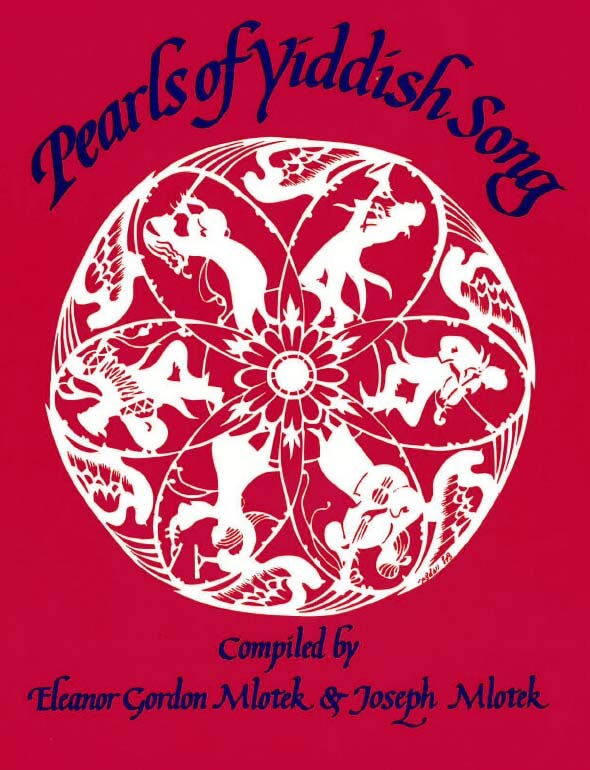Folksong about the Jewish underworld in Warsaw. Collected from Alexander Erlich (New York City) and published in Yidisher folklor, 1954. The melody of the refrain is similar to the song “Mir zaynen nikhter” (We are sober).
The song was based on a true incident. According to Bernard Goldstein in Tsvantsik yor in varshever bund, 1919-1939 (Twenty Years in the Warsaw Bund), Harshl was an extortionist and leader of the Jewish underworld in Warsaw. Meyer-Tshompl, a coal deliverer, was a leader of a group in a different section of the city; he “dethroned” Harshl and took over his territory on Szwientojerska Street. Goldstein wrote: “This created such a furor in the underworld that a song about this incident arose and spread outside the confines of the Warsaw underworld.”

Harshl was one of the big shots.
Wherever he went, he’d order drinks for everyone.
Today Harshl walks around looking down in the mouth.
He was beaten up and he doesn’t know why.
Harshl, where are you going?
Where are you standing?
Where are you with your vulgar hands?
You no longer have any hands.
You no longer have any territory.
You won’t be taking a percentage on Szwientojerska Street.
Harshl was the handsomest of them all.
But Mayer-Tshompl came along and took away his bride.
Harshl was playing tic-tac-toe.
But Yoyne-Mekhl came and broke his jaw
Harshl iz geven eyner fun di groyse,
Vu er iz gekumen, hot er geheysn
shteln a koyse,
Haynt geyt Harshl aropgelozt di noz,
Er hot gekrign leyges, veyst er nisht
far vos.
Refrain:
Harshl, vu geystu?
Harshl, vu shteystu?
Harshl, vu bistu
mit dayne grobe hent?
Du host shoyn nisht keyn hent,
Du host shoyn nisht keyn vent,
Du vest shoyn nisht nemen
oyf shventoyerske keyn protsent.
Harshl iz geven der shenster fun zey ale,
Iz gekumen Meyer-Tshompl,
un hot im tsugenumen di kale;
Haynt geyt Harshl aropgelozt di noz,
Er hot gekrign leyges,
veyst er nisht far vos.
Harshl hot geshpilt orde-borde-shorde,
Iz gekumen Yoyne-Mekhl, im
ongehakt di morde;
Haynt geyt Harshl aropgelozt di noz,
Er hot gekrign leyges,
veyst er nisht far vos.
האַרשל איז געװען אײנער פֿון די גרױסע,
װוּ ער איז געקומען, האָט ער געהײסן שטעלן אַ כּוסה,
הײַנט גײט האַרשל אַראָפּגעלאָזט די נאָז,
ער האָט געקריגן לײגעס, װײסט ער נישט פֿאַר װאָס.
רעפֿרײן:
האַרשל, װוּ גײסטו?
האַרשל, װוּ שטײסטו?
האַרשל, װוּ ביסטו מיט דײַנע גראָבע הענט?
דו האָסט שױן נישט קײן הענט,
דו האָסט שױן נישט קײן װענט,
דו װעסט שױן נישט נעמען אױף שװענטאָיערסקע קײן פּראָצענט.
האַרשל איז געװען דער שענסטער פֿון זײ אַלע,
איז געקומען מאיר־טשאָמפּל,
און האָט אים צוגענומען די כּלה;
הײַנט גײט האַרשל אַראָפּגעלאָזט די נאָז,
ער האָט געקריגן לײגעס, װײסט ער נישט פֿאַר װאָס.
האַרשל האָט געשפּילט אָרדע־באָרדע־שאָרדע,
איז געקומען יונה־מעכל, אים אָנגעהאַקט די מאָרדע;
הײַנט גײט האַרשל אַראָפּגעלאָזט די נאָז,
ער האָט געקריגן לײגעס, װײסט ער נישט פֿאַר װאָס.
Song Title: Harshl

First published in 1988 as Pearls of Yiddish Song: Favorite Folk, Art and Theatre Songs, this anthology contains 115 songs. Some material had never been published, while others, included in rare song collections or sheet music, were largely inaccessible. The songs presented reflect Jewish life in Eastern Europe and the United States and depict childhood, love, family celebrations, poverty, work and struggle. There are also songs from the Hasidic and Maskilic movements, songs of Zion and of America, as well as songs from the Yiddish theater.
The title of this anthology derives from the weekly two-page feature column “Pearls of Yiddish Poetry,” which the compilers Yosl and Chana Mlotek initiated in 1970 in the Yiddish newspaper Der Forvertz (the Yiddish Daily Forward). Hundreds of readers from around the world — including authors, composers, singers, actors — became co-participants in this collective folk project and recalled melodies, lines, fragments, stanzas and their variants of songs, poems, and plays which they had heard in their youth. At first, readers sent in only written material. Later, they also taped songs on cassettes, many of whose melodies had, until then, never been recorded. They also identified and supplied missing information regarding lyricists, poets, and composers and described the circumstances surrounding the songs’ origins, their dissemination, diffusion and impact.